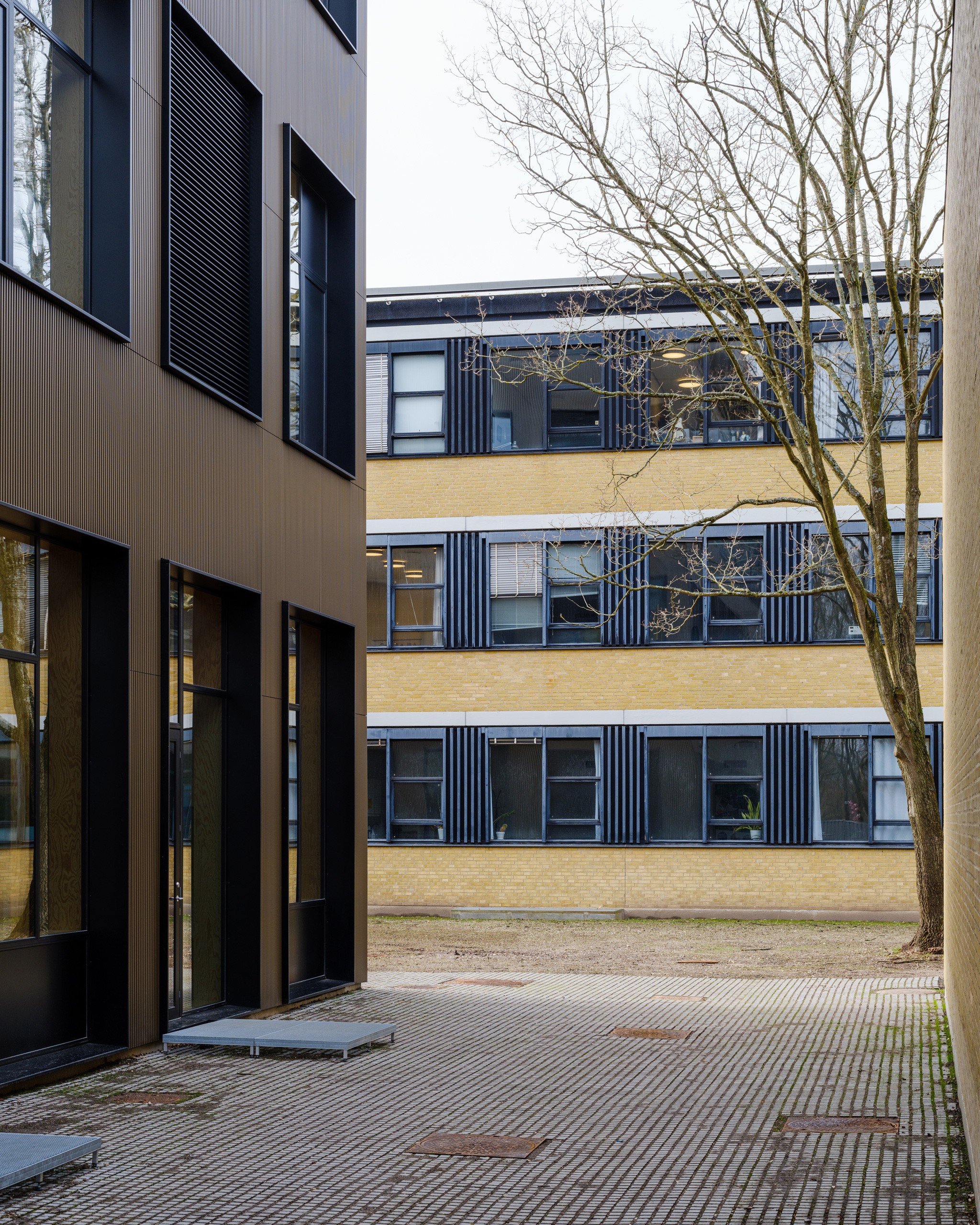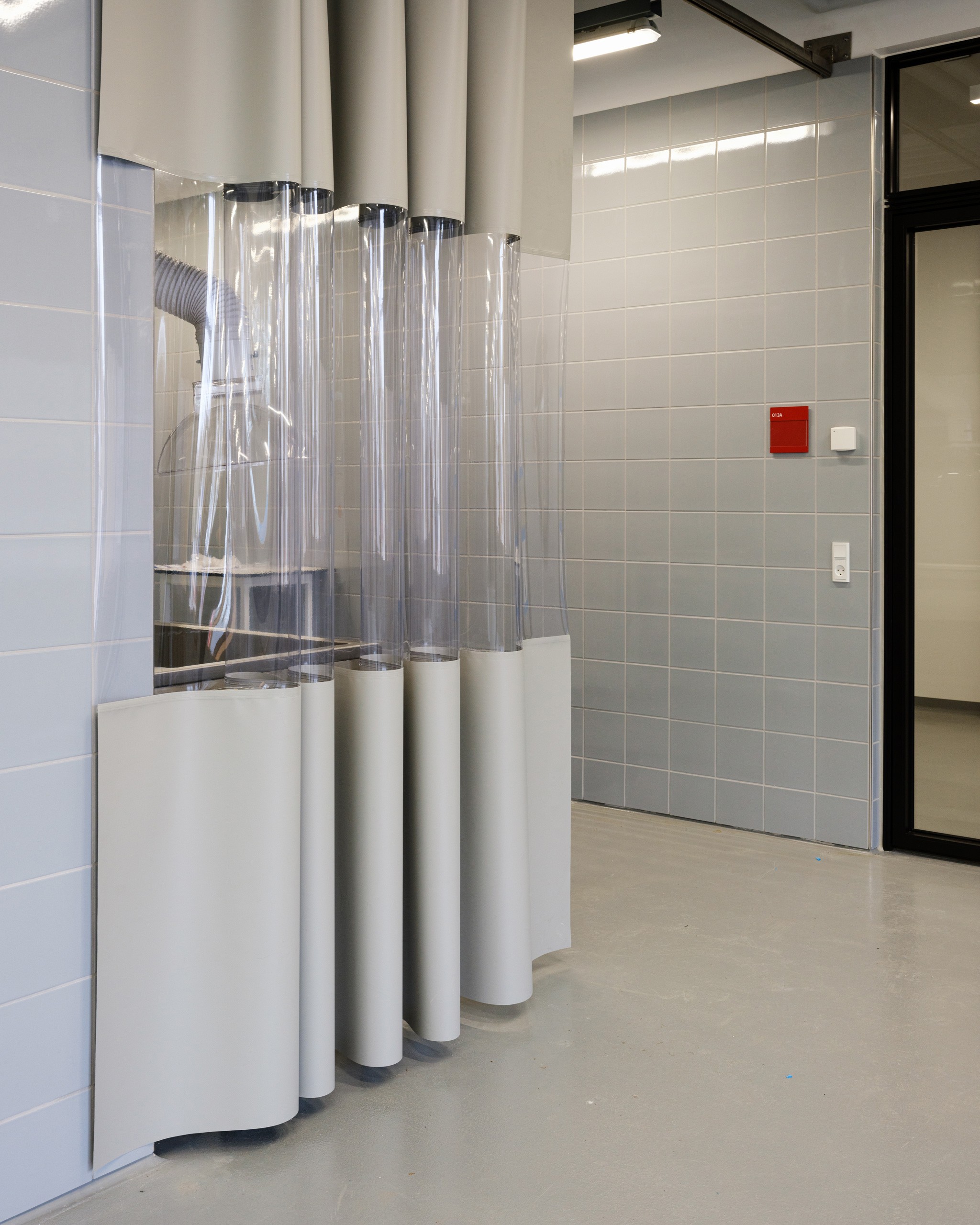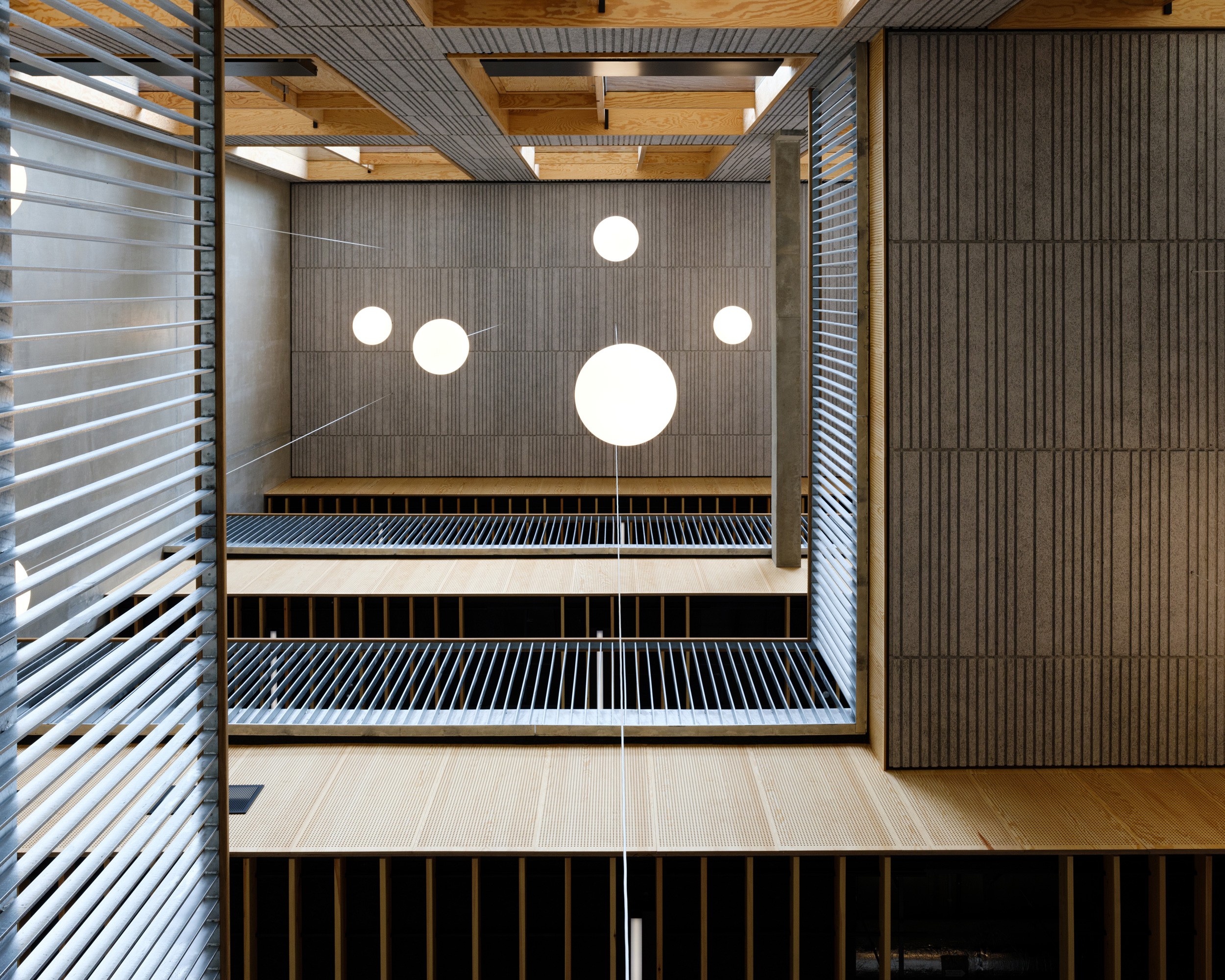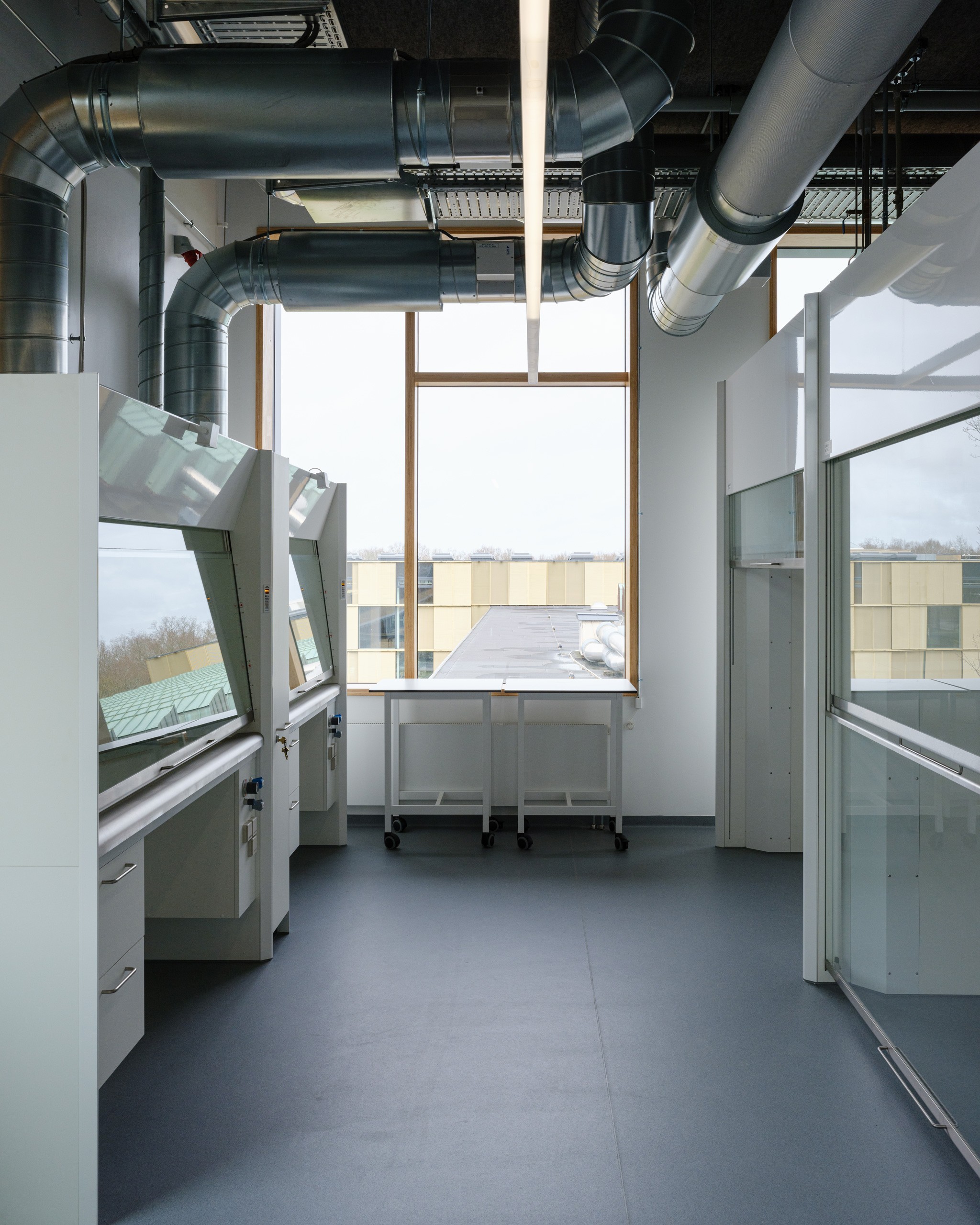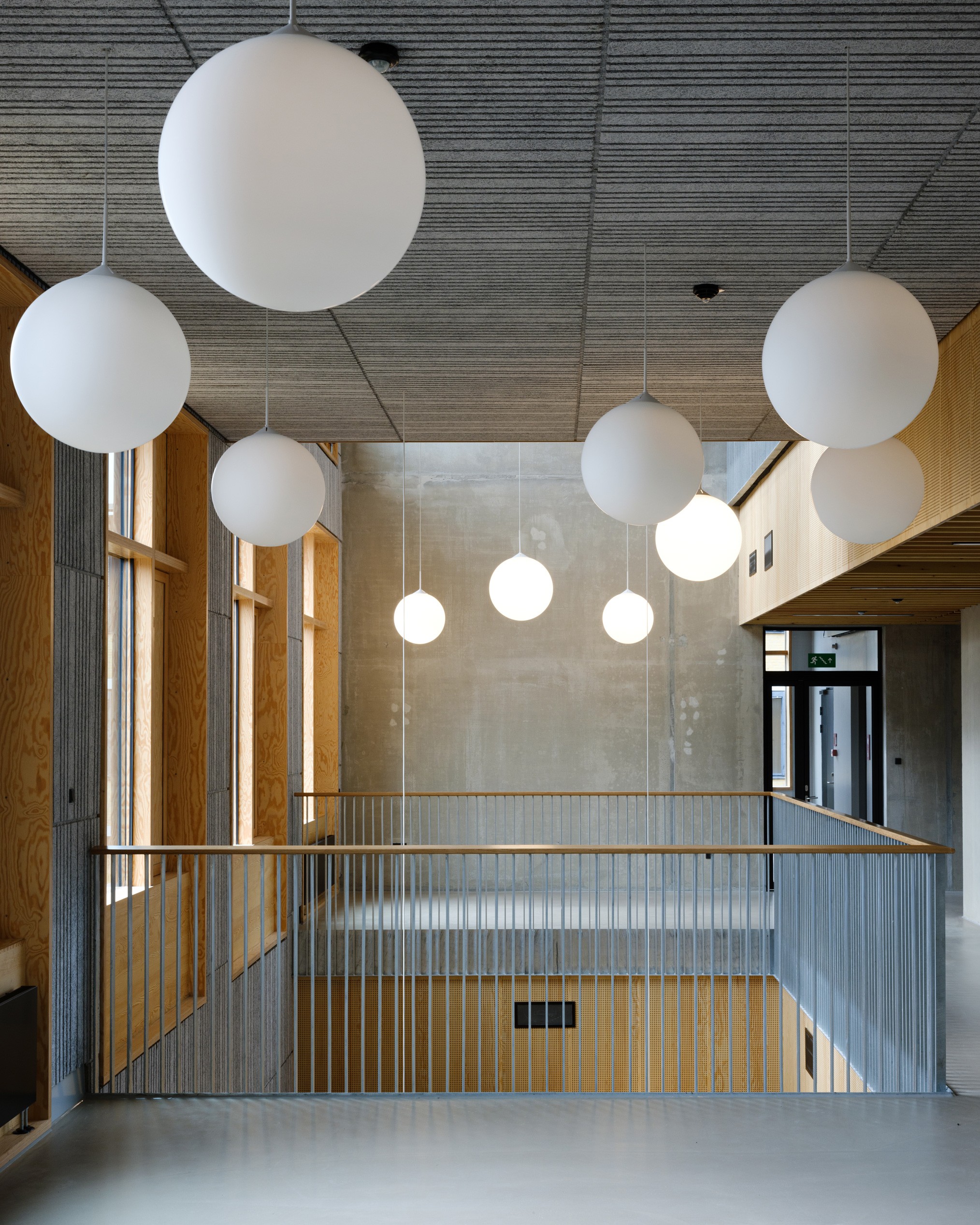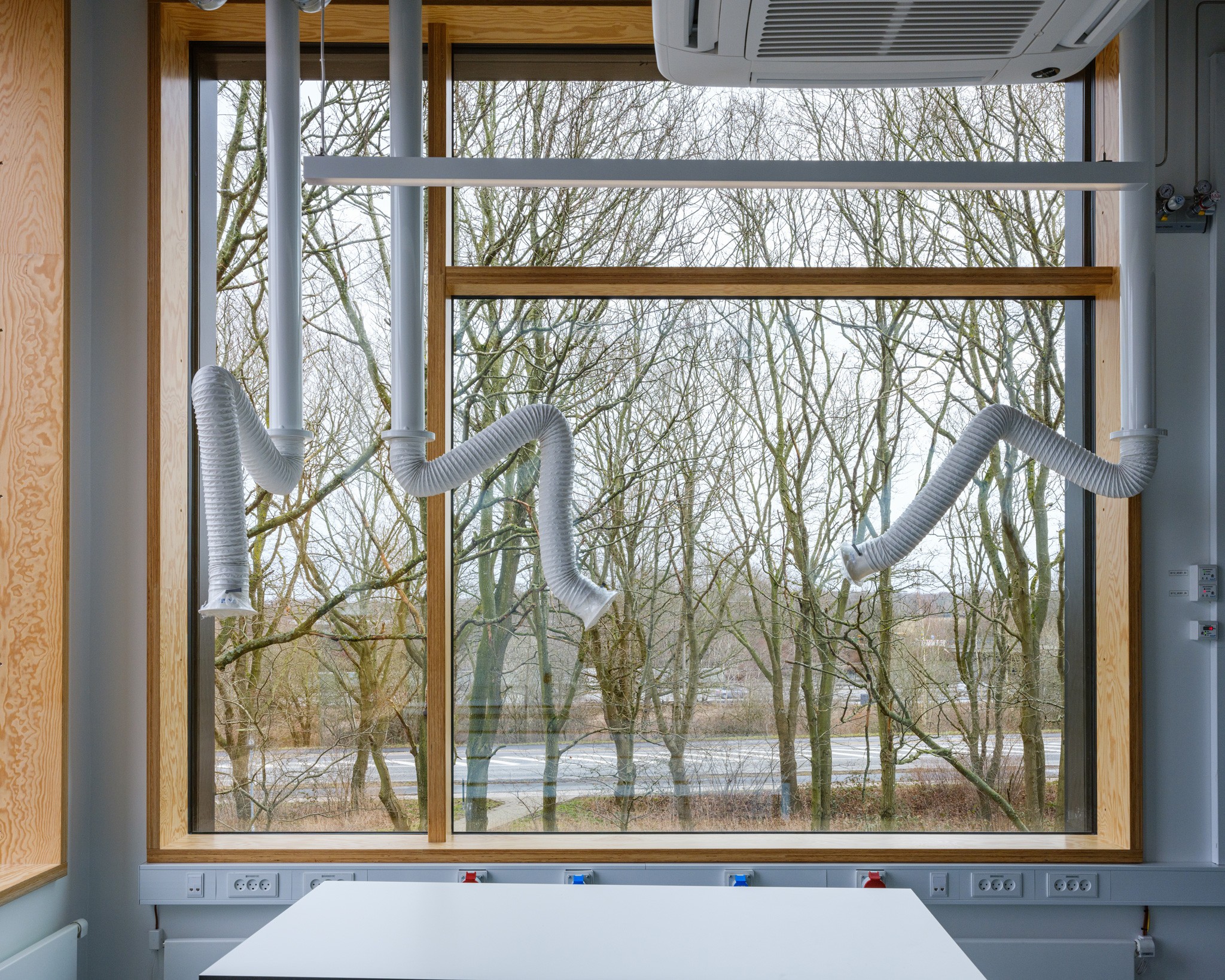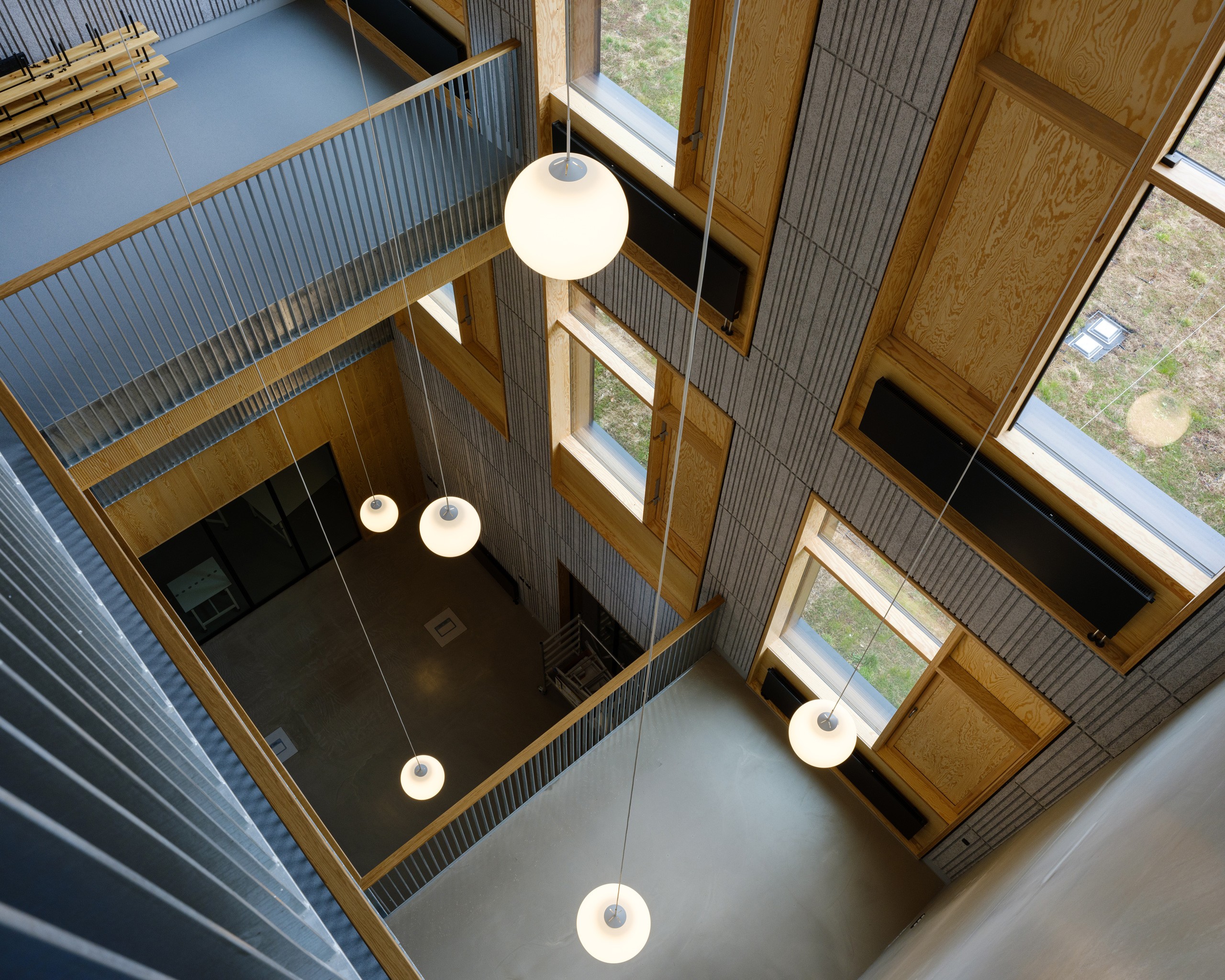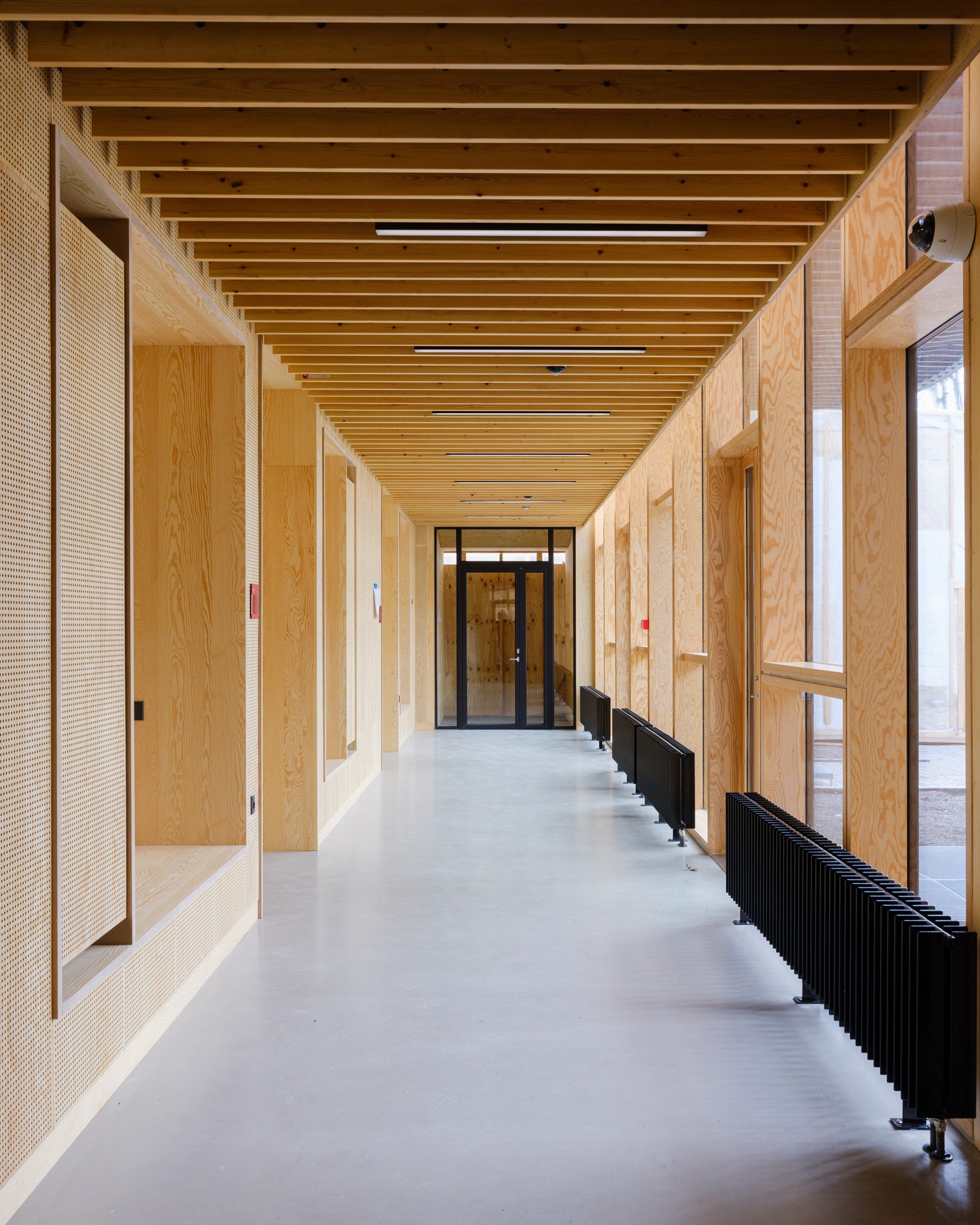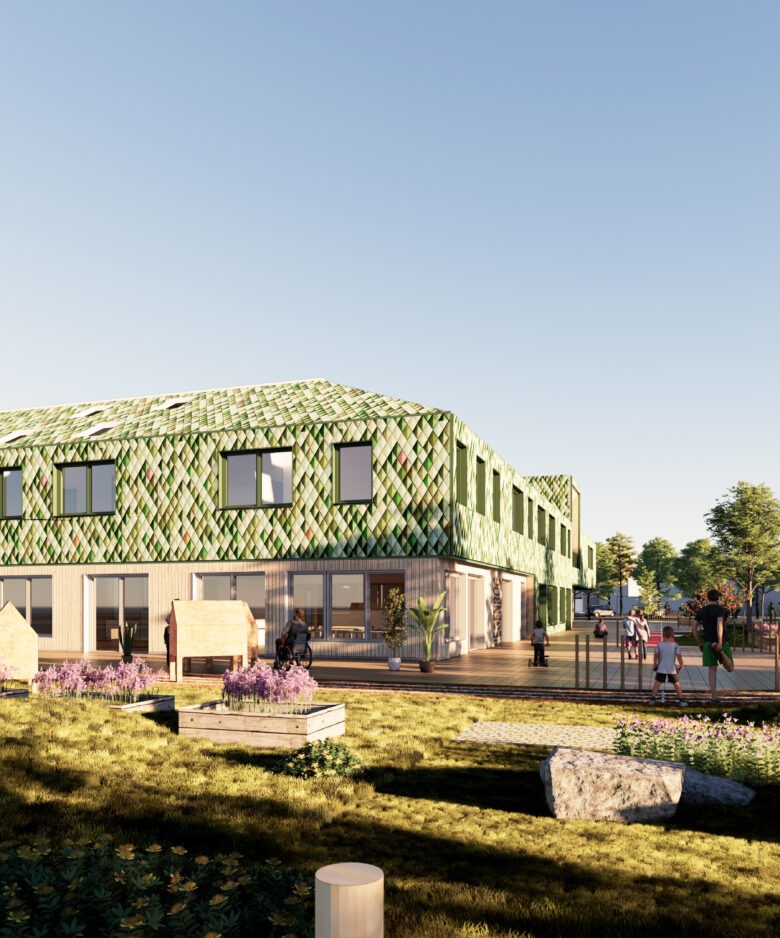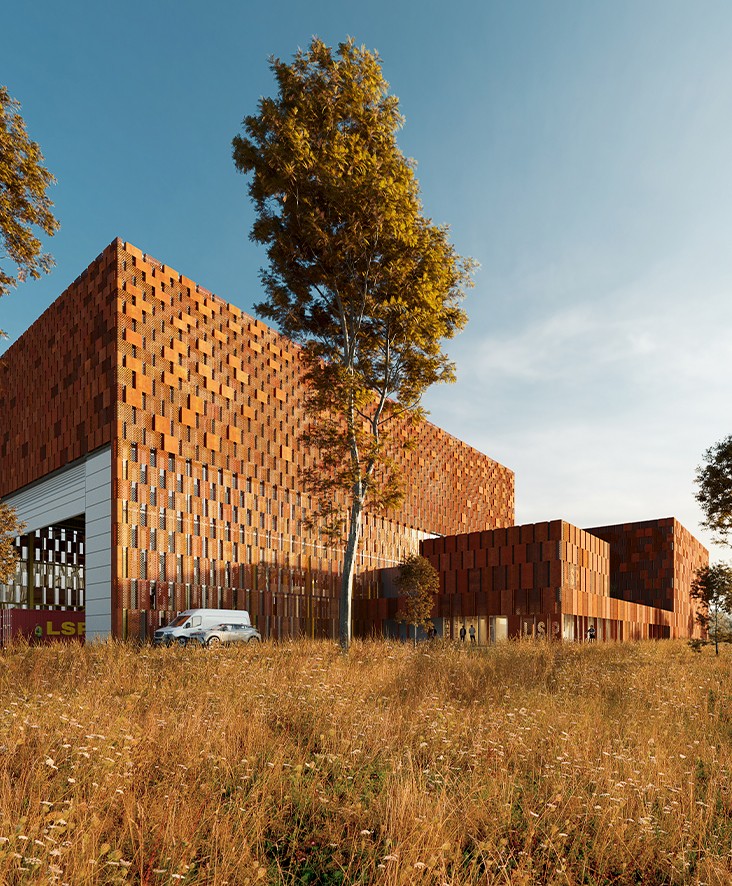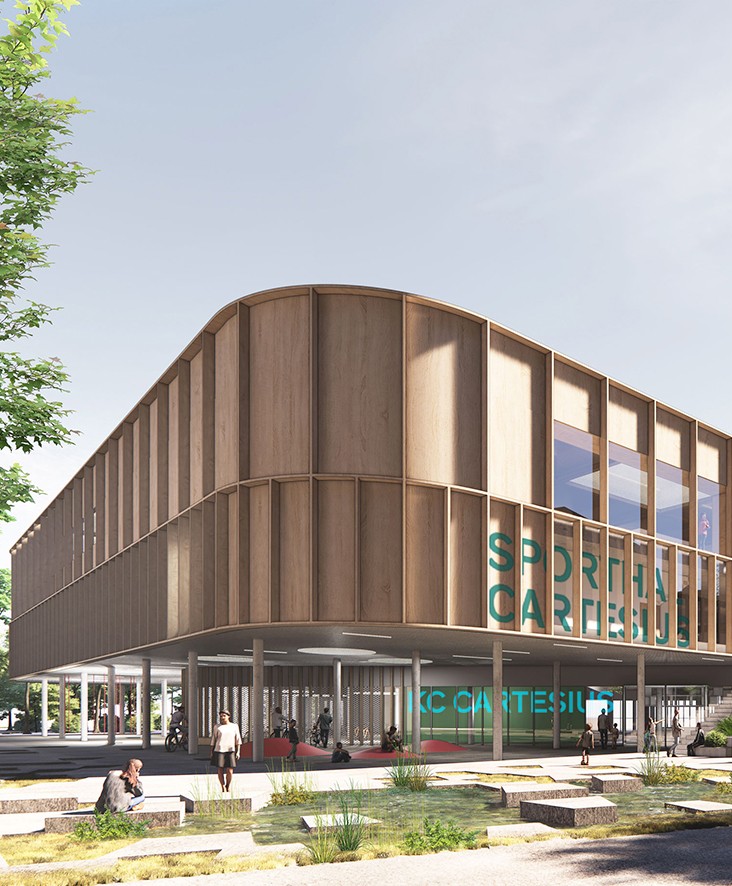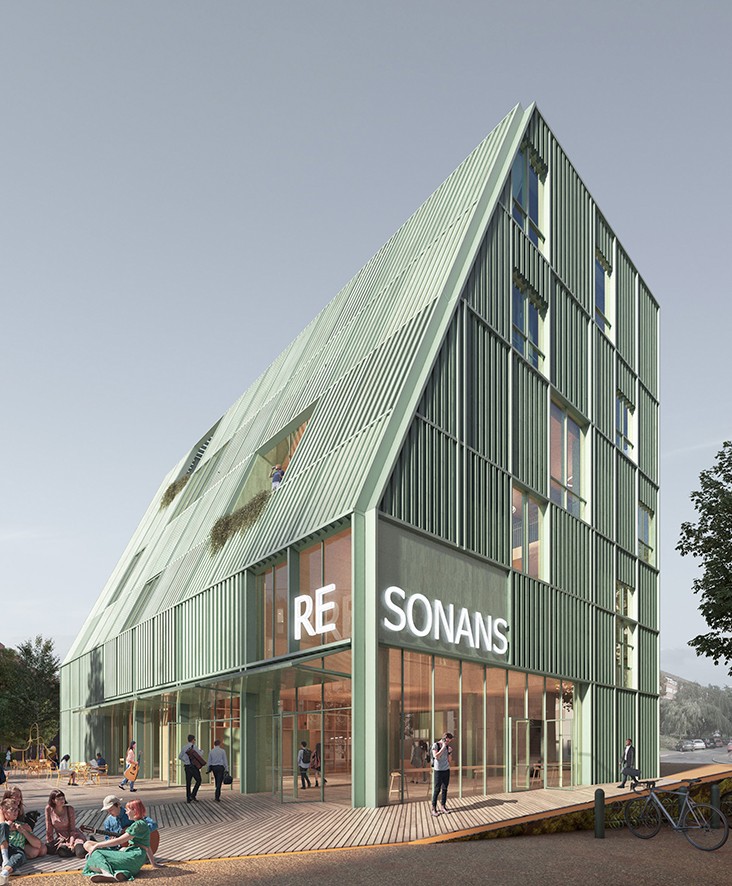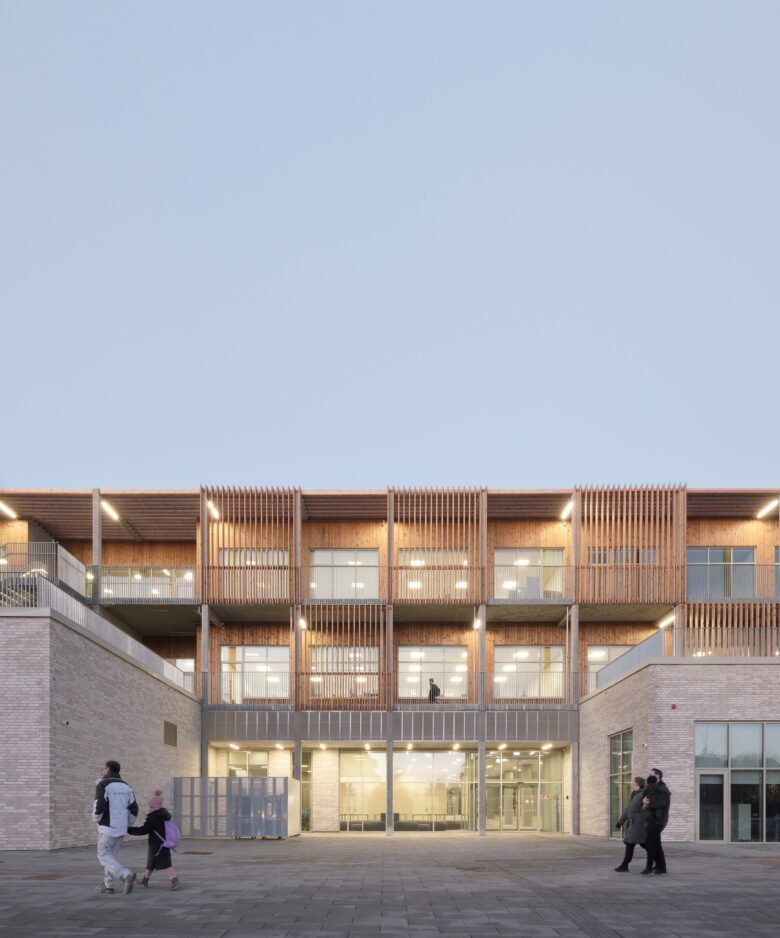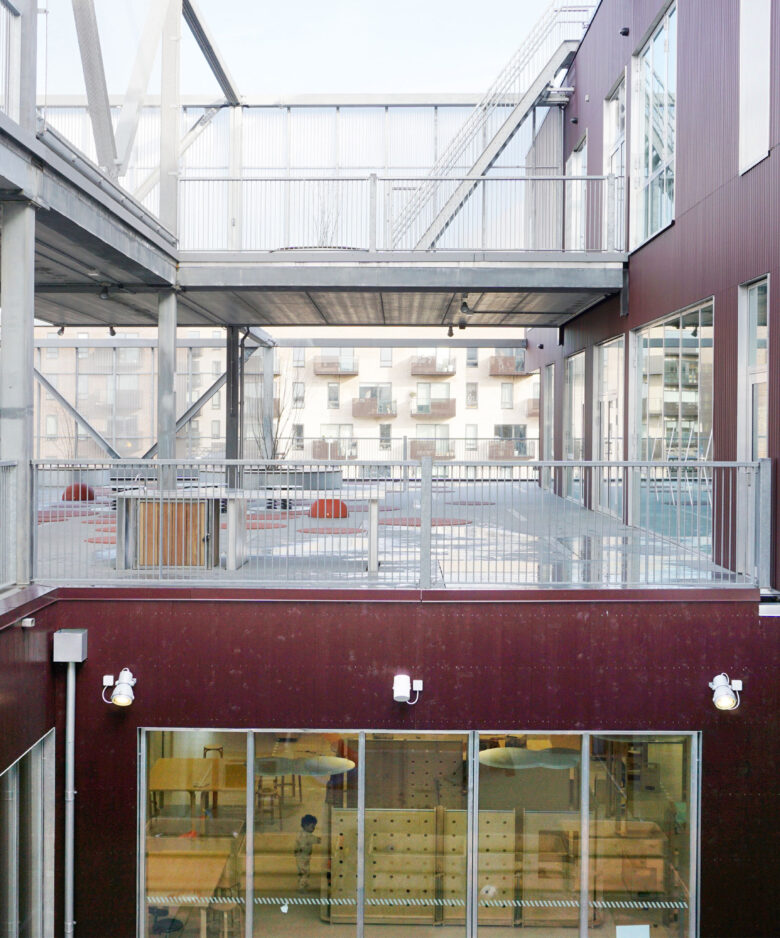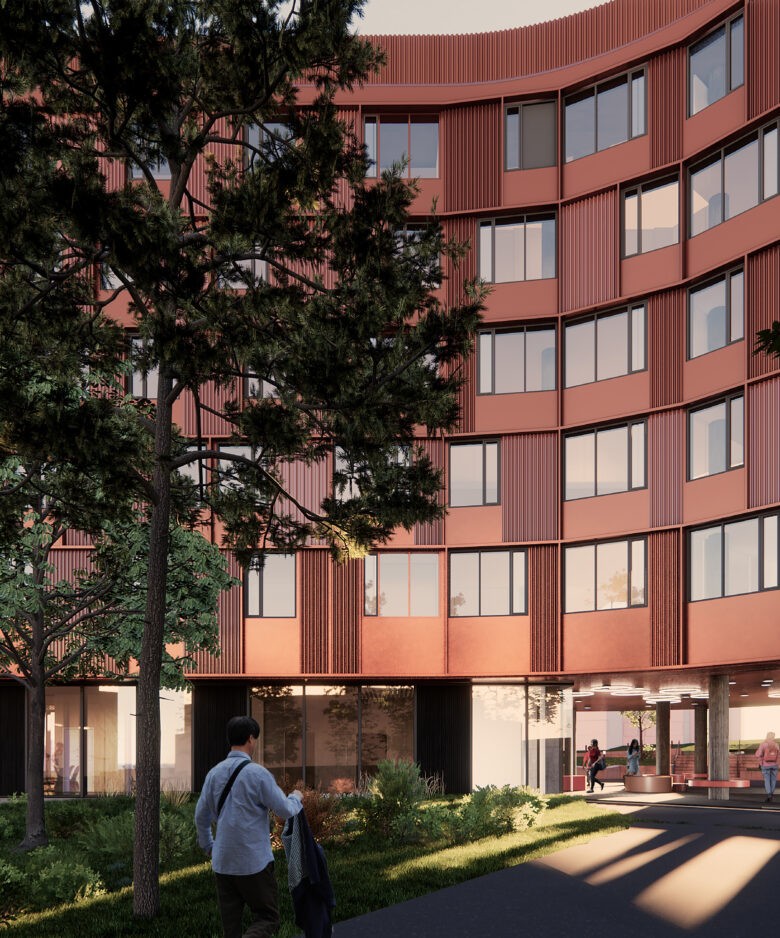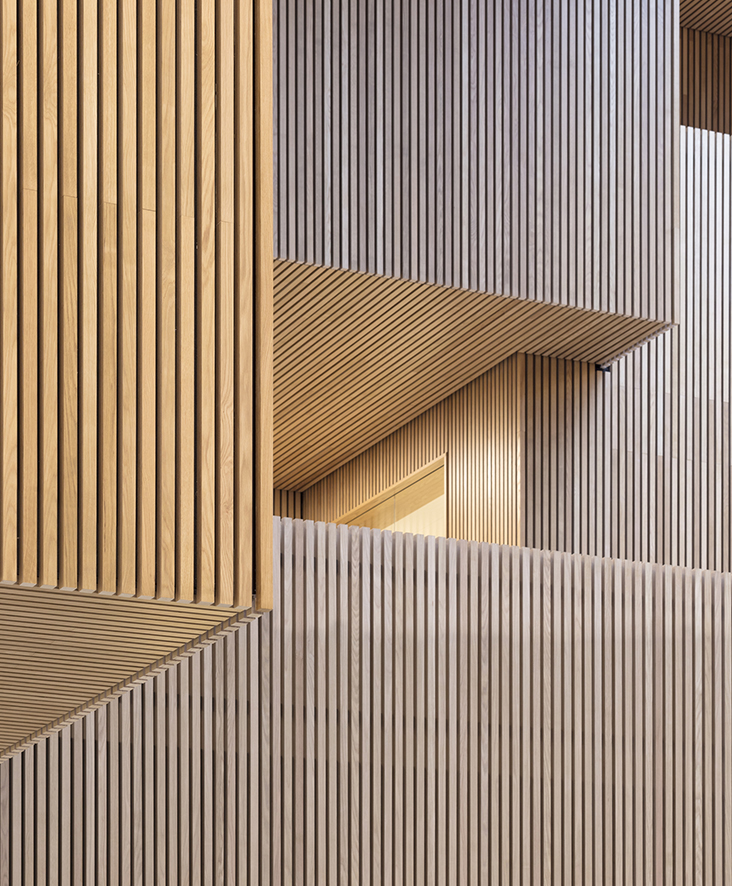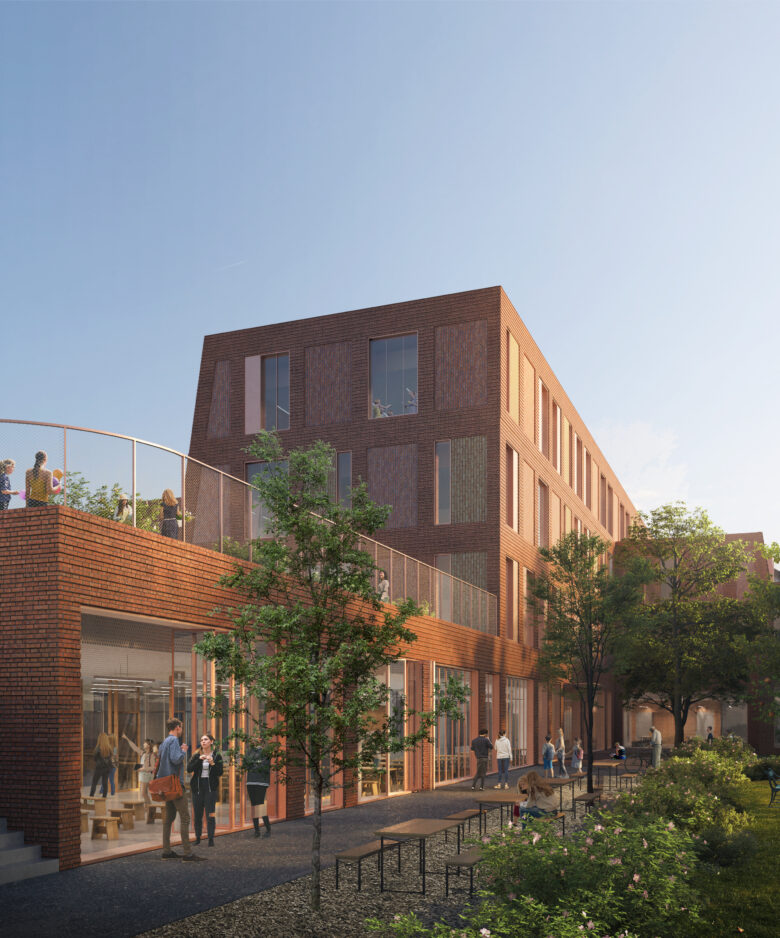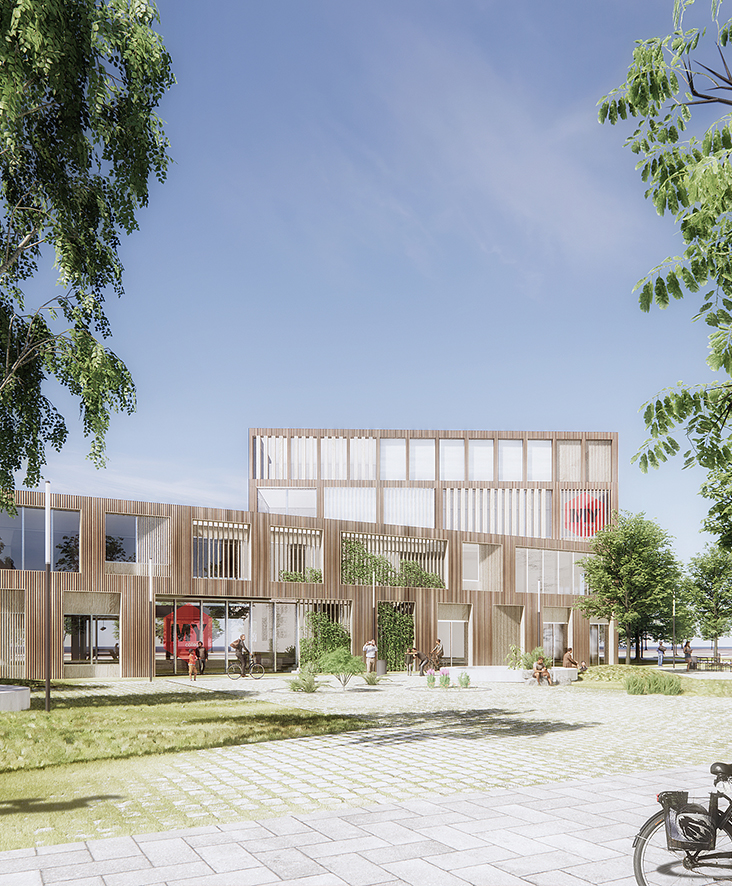DTU B112
Visionary environment
The open and visionary building B112 creates the framework for knowledge sharing and innovation. Here, researchers and students experiment with the recycling of resources in advanced, functional laboratories where the working environment is state-of-the-art. Glass walls between the laboratories encourage collaboration across disciplines, just as warm break-out spaces encourage spontaneous encounters between people.
The open and visionary building, B112, creates a framework for knowledge sharing and innovation. Here researchers and students experiment with the recycling of resources in advanced, functional laboratories where the working environment is state-of-the-art. Glass walls between the laboratories encourage collaboration across disciplines, just as warm break-out spaces encourage organic encounters between people.
The new laboratory building stands as a beacon for innovation within research in resource efficiency at DTU Sustain. The distinct façade reflects the sunlight in a golden hue that gives the building a modern look that echoes the ground-breaking research that takes place inside. Large windows give the building an open and inviting look that draws by-passers into the building. Openness is also a key feature inside the building, as the many windows allow the users of the house to feel its activity. This creates the framework for a strong community with knowledge sharing at its core while it nourishes a creative and scientific environment.
Resource Recovery
The state-of-the-art facilities in B112 provide the ideal setting for innovative research into recycling and recovery of resources. The overall layout concept is that the rough functions take place on the ground floor, while finer and analytical functions take place on the upper floors. The ground floor also contains a sample reception area, where trucks can load off deliveries. From here the materials are sorted and distributed throughout the building for further treatment in the laboratories on levels 1 and 2. Glass walls between the laboratories allow students and scientists to get inspired by the experiments taking place throughout the building. Windows in the outer walls let daylight pour into the building while scientists can catch views of the surrounding green area, a quality that supports health and well-being in the work and study environments.
Cooperation is Key
From the laboratories and offices, the users of the house can easily pull out into the adjacent break-out areas. Here, they can share knowledge and experience a sense of community with their peers. On all three levels of the house, we have created spaces that support interdisciplinary synergy and organic social encounters. From the flexible meeting center in the entrance area – which can accommodate group work, exhibitions, and larger institute meetings – to the triple-height hall, which visually connects all the levels and lets overhead light flow through the house. The house’s open architecture creates a calm atmosphere and gives its users a view of the surrounding buildings, green areas, and the building’s very own green courtyard.
High Ambitions
Building B112 is a showcase for DTU’s high sustainability ambitions. To make informed decisions related to sustainability, we conducted several Life Cycle Assessments (LCAs) starting with the initial stages of the design process. Particularly the analyses of volume, construction principles, façade materials, insulation, and floor materials were influential in the further project. We let the results of the LCA assessments guide the design process all the way to the final design, to meet DTU’s ambition with innovative solutions. This project was completed before LCAs were made a requirement.
To meet the high requirements for flexibility and sustainability, especially concerning material consumption, a column/beam principle has been chosen as the structural system. Traditionally, laboratory construction would involve load-bearing facades that support the need for long spans and efficient routing of installations. By integrating facade columns into the facade structure, the same level of flexibility can be achieved over time. This allows laboratories to be created within spaces that are initially designated as office areas. Similarly, open-plan offices can be arranged on the wider laboratory side.
The building is certified for DGNB Diamond. To ensure solutions of high architectural quality, we actively worked with DGNB Diamond in the project development. E.g. we oriented the building according to light conditions and implemented glass walls between laboratories to ensure low energy consumption and a good indoor climate. In addition, we carefully selected materials according to circular principles, making sure we not only minimized the variety of materials but also according to life cycle qualities. We also prioritized flexibility in the architecture so that the building can accommodate developments in the research community and thus remain functional throughout its lifetime.
Foresight for the Future
The building provides an optimal framework for research in the field of environmental and resource studies. Facilities include modern provisions for receiving, handling, and processing residual products. The building also houses laboratories for microbiology, and metal and organic laboratories. The project is planned with foresight for future needs so that the laboratory layout is flexible and can be adapted to changing needs. This is achieved by arranging the vertical shafts and horizontal conduits to allow ample space for future upgrades/expansions. For the main layout of the technical installations, it is a requirement that changes to sections can occur without affecting surrounding areas/floors, with the possibility of isolating/disconnecting rooms and sub-areas individually. Equipment connections are prepared with the fewest possible obstacles to allow for a free layout and use of the laboratories. Installations are prepared for maximum flexibility. Vertical main lines are dimensioned so that the maximum consumption can occur on any floor. As a result, it is a distinctive laboratory building that accommodates approximately 18 researchers and students daily.
- Client
- Technical University of Denmark
- Area
- 2 524 m2 / 27 168 ft2
- Year
- 2022
- Location
- Lyngby, Denmark
- Collaborators
- Elindco / Norconsult / Langvad
- Images
- Morten de Fine Olivarius / Carsten Snejbjerg

